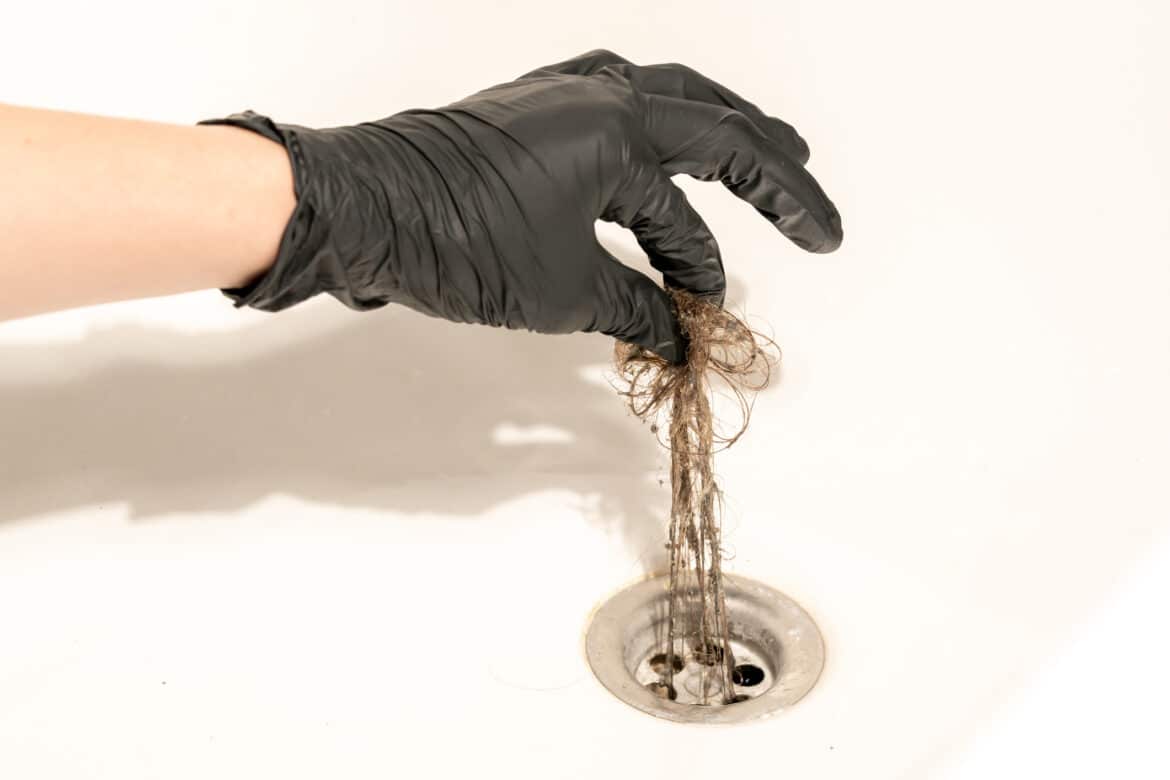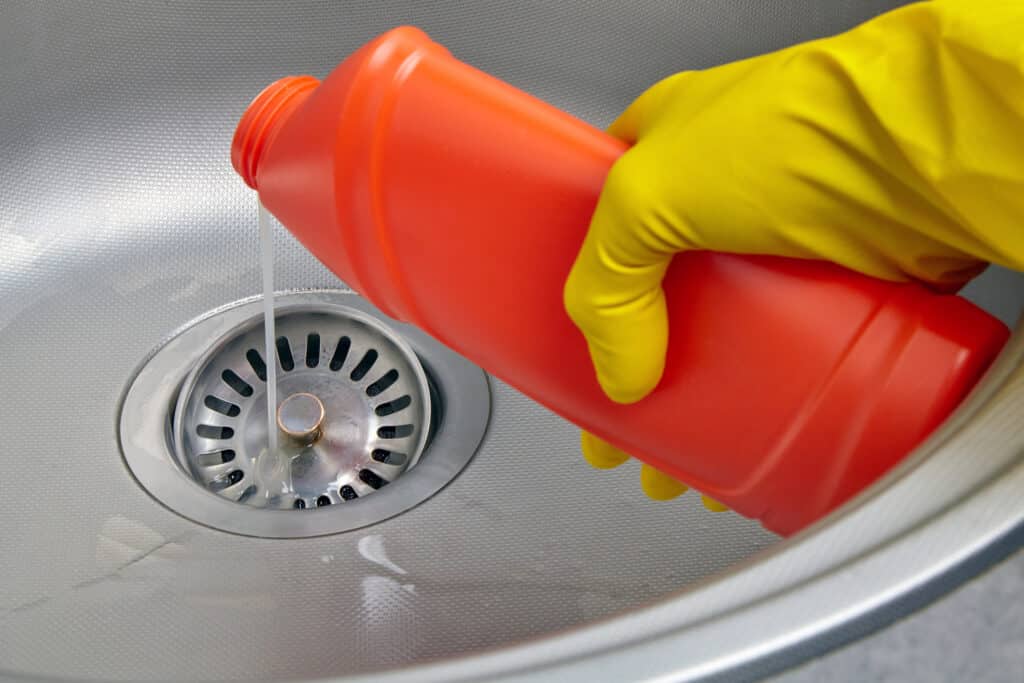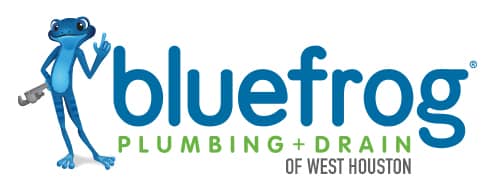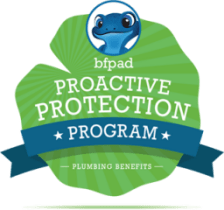
How To Prevent Clogged Drains In Your Home: Your Complete Guide
Understanding Common Causes of Clogged Drains
Do you often find yourself dealing with clogged drains?
Understanding the common causes of these blockages can help you take preventive measures to avoid them.
Hair, soap scum, food waste, foreign objects, and mineral buildup are the usual suspects when it comes to clogged drains.
Hair and Soap Scum
Hair and soap scum are major contributors to bathroom drain clogs.
Hair can easily wrap around parts of the drain, and when combined with soap scum, it forms tough blockages that are hard to clear.
Food Waste
In the kitchen, food particles, grease, and oil are frequent culprits.
Even with garbage disposals, certain food items like coffee grounds, eggshells, and fibrous vegetables can cause clogs if not disposed of properly.
Foreign Objects
Accidentally dropping small items such as jewelry, toys, and hygiene products into sinks and toilets can lead to significant blockages.
These objects often require professional removal to prevent damage to the plumbing system.
Mineral Buildup
For those living in areas with hard water, like Sugar Land, TX, mineral deposits can accumulate in the pipes.
This buildup reduces water flow over time and eventually leads to clogs.
Preventive Measures for Clogged Drains in Bathrooms
Use Drain Covers
One of the simplest yet most effective ways to prevent bathroom drain clogs is by using drain covers or strainers.
These devices catch hair and soap scum before they can enter the drain, significantly reducing the likelihood of blockages.
Regularly cleaning these covers ensures they remain effective.
Regular Cleaning
Performing routine cleaning of your bathroom drains can prevent the buildup of debris.
Once a week, pour a mixture of baking soda and vinegar down the drain, followed by hot water.
This natural cleaning solution helps dissolve minor buildup and keeps your drains clear.
Avoid Flushing Foreign Objects
Only flush toilet paper and human waste.
Items like wipes, cotton balls, and hygiene products should be disposed of in the trash, not the toilet.
These objects do not break down easily and can cause serious blockages in your plumbing system.
Use Enzyme Cleaners
For a deeper clean, use enzyme-based drain cleaners periodically.
These cleaners use natural enzymes to break down organic material, helping to keep your drains clear without the harsh chemicals that can damage your pipes over time.
By incorporating these preventive measures into your regular cleaning routine, you can significantly reduce the risk of clogged bathroom drains.
Ensuring that only appropriate materials go down your drains and maintaining regular cleaning habits will keep your plumbing system functioning smoothly.
Preventive Measures for Clogged Drains in Kitchens
Dispose of Grease Properly
One of the most common causes of clogged drains in kitchens is the improper disposal of grease and oil. Never pour grease or oil down the drain.
Instead, collect it in a container and throw it away once it solidifies.
Grease can solidify inside the pipes, causing blockages that are difficult to remove.
Use a Sink Strainer
A simple and effective way to prevent food particles from clogging your kitchen sink is to use a sink strainer.
This device catches food debris and prevents it from entering the drain.
Make it a habit to clean the strainer regularly to ensure it continues to function properly.
Run Hot Water
After washing dishes, run hot water down the drain for a few minutes.
This practice helps to dissolve any residual grease or food particles, preventing them from building up inside the pipes.
Hot water helps to keep the pipes clear and free-flowing.
Avoid Dumping Certain Foods
Certain foods are more likely to cause clogs than others.
Avoid dumping coffee grounds, eggshells, and fibrous vegetables like celery and potato peels down the drain.
Even with a garbage disposal, these items can create blockages and damage your plumbing system.
Regular Maintenance
Periodically, perform a deeper cleaning of your kitchen drains.
Pour a mixture of baking soda and vinegar down the drain, let it sit for about 15 minutes, then flush with hot water.
This natural cleaning method helps to break down food particles and keep your drains clear.
By adopting these preventive measures, you can significantly reduce the risk of clogs in your kitchen drains.
Proper disposal of grease and food waste, along with regular cleaning and maintenance, will ensure that your kitchen plumbing remains in good working order.
Preventive Measures for Other Clogged Drains in the Household
Clean Gutters and Downspouts
Regularly cleaning your gutters and downspouts is essential for preventing blockages that can cause water to back up and damage your home.
Remove leaves, twigs, and other debris to ensure water flows freely.
Consider installing gutter guards to minimize debris buildup and reduce maintenance.
Maintain Floor Drains
In areas like basements, garages, and laundry rooms, floor drains are crucial for preventing water accumulation.
Ensure these drains are clear of debris and functioning properly.
Periodically pour a bucket of water into the floor drain to ensure it remains unobstructed and to keep the trap seal intact, which prevents sewer gases from entering your home.
Regularly Check Appliances
Appliances like washing machines and dishwashers can contribute to clogged drains if not maintained properly.
Regularly check and clean the filters and drains of these appliances to prevent lint, soap scum, and food particles from entering the plumbing system.
This simple maintenance can prevent significant blockages and extend the life of your appliances.
Use Drain Guards
For sinks in utility rooms and other areas prone to debris, use drain guards to catch larger particles.
These inexpensive devices can prevent hair, fabric, and other debris from entering the drain. Clean the guards regularly to maintain their effectiveness.
Schedule Professional Maintenance
To keep your household drains in optimal condition, consider scheduling regular maintenance with a professional plumbing service like bluefrog Plumbing + Drain of West Houston, TX.
Professional inspections can identify potential issues before they become major problems.
Services such as hydrojetting can effectively clear pipes of any buildup, ensuring your plumbing system operates smoothly.
By following these preventive measures, you can protect all the drains in your home from clogged drains and ensure your plumbing system remains efficient and reliable.
Regular maintenance and being mindful of what goes down the drains are key to preventing costly and inconvenient blockages.

Natural and Chemical Cleaning Solutions
Baking Soda and Vinegar
Looking for a natural way to keep your drains clear?
Baking soda and vinegar are an effective and environmentally friendly option.
Start by pouring a cup of baking soda down the drain, followed by a cup of vinegar.
Let the mixture sit for about 15 minutes.
The chemical reaction between baking soda and vinegar helps break down organic material and can clear minor clogs.
After 15 minutes, flush the drain with hot water to wash away any loosened debris.
Enzyme Cleaners
Enzyme-based drain cleaners offer another natural solution.
These cleaners contain natural enzymes and bacteria that eat away organic matter in the drains.
They are safe for all types of pipes and are effective for maintaining clear drains.
Use enzyme cleaners regularly to prevent buildup and keep your plumbing system in good shape.
Avoid Harsh Chemicals
While chemical drain cleaners can quickly dissolve clogged drains, they come with significant downsides.
Harsh chemicals can damage your pipes over time and are harmful to the environment.
Use chemical cleaners sparingly and as a last resort.
If you do use them, follow the manufacturer’s instructions carefully to avoid damaging your plumbing system.
Plungers and Drain Snakes
Plungers are a simple and effective tool for clearing clogged drains.
Use a plunger to create a vacuum and dislodge the blockage.
For tougher clogs, a drain snake (also known as an auger) can be more effective.
A drain snake allows you to physically break up or pull out the clog, providing a more thorough cleaning.
This Old House and Bob Vila both recommend using these tools as a first line of defense against clogs).
By incorporating these natural and chemical cleaning solutions into your routine, you can effectively maintain clear drains and avoid the hassle of major blockages.
Always prioritize natural and mechanical methods to preserve the integrity of your plumbing system and protect the environment.
How to Handle Emergency Clogged Drain Situations
Immediate Steps to Take
In a plumbing emergency like a severe clogged drain or water backup, act quickly. First, turn off the water supply to prevent flooding.
Find the main shut-off valve near the water meter or where the main line enters the house.
This can help prevent a small issue from becoming a major disaster.
Use Basic Tools
Start with a plunger to try and dislodge the clogged drain.
Ensure a tight seal and use strong, quick plunges.
Cover overflow openings in sinks and showers to enhance the plunging effect.
If this doesn’t work, use a drain snake to break up or remove the blockage by slowly feeding it into the drain and turning the handle.
Avoid Chemical Cleaners
Resist the urge to use chemical drain cleaners in emergencies.
They can damage pipes and often do more harm than good, especially with severe clogs.
Stick to mechanical methods like plunging or snaking, or natural solutions like baking soda and vinegar if time permits.
Prevent Future Emergencies
After resolving the immediate issue, take steps to prevent future problems.
Schedule regular maintenance and inspections with a professional plumbing service.
Educate household members on proper disposal practices to avoid clogged drains.
By following these steps, you can effectively handle emergency drain situations and prevent future occurrences, ensuring your home’s plumbing system remains in good working order.
When to Call a Professional
Persistent Clogs
Are you dealing with a clogged drain that just won’t go away?
Despite your best efforts, some clogs are too stubborn and require professional intervention.
Persistent clogs that resist plungers, natural remedies, and even drain snakes often indicate a deeper issue within your plumbing system.
These clogs might be caused by root intrusions, severe pipe damage, or deeply embedded obstructions that need specialized tools and expertise to be removed.
Slow Drains
If you notice that water is draining slowly across multiple fixtures in your home, it could be a sign of a serious blockage in your main sewer line.
Slow drains throughout the house often point to significant obstructions that need professional cleaning.
This is particularly important in older homes where tree roots and pipe degradation can cause extensive damage.
Unpleasant Odors
Persistent foul odors emanating from your drains can indicate a buildup of organic material or a serious blockage.
If standard cleaning methods fail to eliminate the smell, it’s time to call a professional.
Professional plumbers can identify the source of the odor and clean the pipes thoroughly to eliminate the problem.
Recurring Clogs
Recurring clogs are a clear sign that there’s an underlying issue that needs professional attention.
If you find yourself frequently dealing with blockages in the same drains, a professional plumber can diagnose the root cause and provide a long-term solution.
This might involve replacing damaged pipes, removing root intrusions, or installing more effective drain guards.
Regular Maintenance
To avoid emergencies, schedule regular maintenance with a professional plumbing service like bluefrog Plumbing + Drain of West Houston, TX.
Regular inspections and maintenance can identify potential issues before they become major problems.
Services such as hydro jetting, which uses high-pressure water to clean the inside of pipes, can keep your plumbing system in optimal condition.
By recognizing these signs and seeking professional help when necessary, you can prevent small plumbing issues from turning into major problems.
Trust the experts at bluefrog Plumbing + Drain of West Houston, TX, to keep your plumbing system running smoothly and efficiently.
Conclusion
Summary of Preventive Measures
Maintaining clear and functional drains in your home requires a proactive approach.
By understanding the common causes of clogged drains and implementing effective preventive measures, you can significantly reduce the risk of blockages.
Regularly use drain covers, clean your drains with natural solutions, and be mindful of what you dispose of in your sinks and toilets.
These simple steps can save you from the inconvenience and expense of dealing with clogged drains.
Benefits of Professional Maintenance
While DIY methods can be highly effective for minor issues, regular professional maintenance is crucial for keeping your plumbing system in optimal condition.
Services like hydro jetting and routine inspections by bluefrog Plumbing + Drain of West Houston, TX, can prevent small problems from escalating into major repairs.
Professional plumbers have the expertise and tools to address persistent issues, ensuring your home’s plumbing system remains efficient and reliable.

FAQs
-
How often should I clean my drains?
It’s important to maintain your drains regularly to prevent buildup and clogged drains. Aim to clean your drains weekly using natural solutions like a mixture of baking soda and vinegar. This combination helps to break down organic materials and flushes them out with hot water, keeping your pipes clear and free-flowing. Regular cleaning not only prevents minor blockages but also helps to avoid larger plumbing issues that can be costly and inconvenient to fix.
-
Can I use chemical drain cleaners?
Chemical drain cleaners can be effective, but they should be used sparingly and as a last resort. While these products can quickly dissolve clogs, they contain harsh chemicals that can damage your pipes over time, leading to corrosion and leaks. Additionally, chemical cleaners are harmful to the environment and can pose safety risks if not handled properly. Whenever possible, opt for natural or enzyme-based cleaners, which are safer for both your plumbing system and the environment.
-
What should I do if my drains are still slow after cleaning?
If you notice that your drains are still slow despite regular cleaning, it may indicate a more serious underlying issue within your plumbing system. Persistent slow drains can be caused by deeper blockages, pipe damage, or even root intrusions. In such cases, it’s best to call a professional plumber who can diagnose and address the problem with specialized tools and expertise. Ignoring slow drains can lead to more significant issues, such as complete blockages or water damage.
-
How can I prevent clogged drains in the kitchen?
Preventing kitchen drain clogs involves a few simple practices. Avoid pouring grease, oil, and fatty substances down the drain, as they can solidify and cause blockages. Instead, dispose of these materials in a container and throw them away once they harden. Use a sink strainer to catch food particles and other debris, and make sure to clean it regularly. Additionally, running hot water down the drain after washing dishes can help to flush away any residual grease and food particles, keeping your pipes clear.
-
When should I call a professional plumber?
You should call a professional plumber if you experience persistent clogs that do not respond to standard cleaning methods, slow drains throughout your home, unpleasant odors coming from your drains, recurring clogs, or water backups. These issues often indicate more severe problems that require professional intervention. Regular professional maintenance is also recommended to keep your plumbing system in optimal condition. Professional plumbers can perform thorough inspections and maintenance tasks, such as hydrojetting, to ensure your pipes remain clear and functional.





;)


